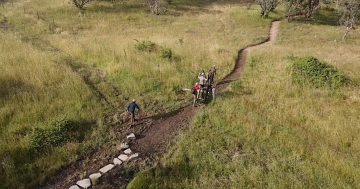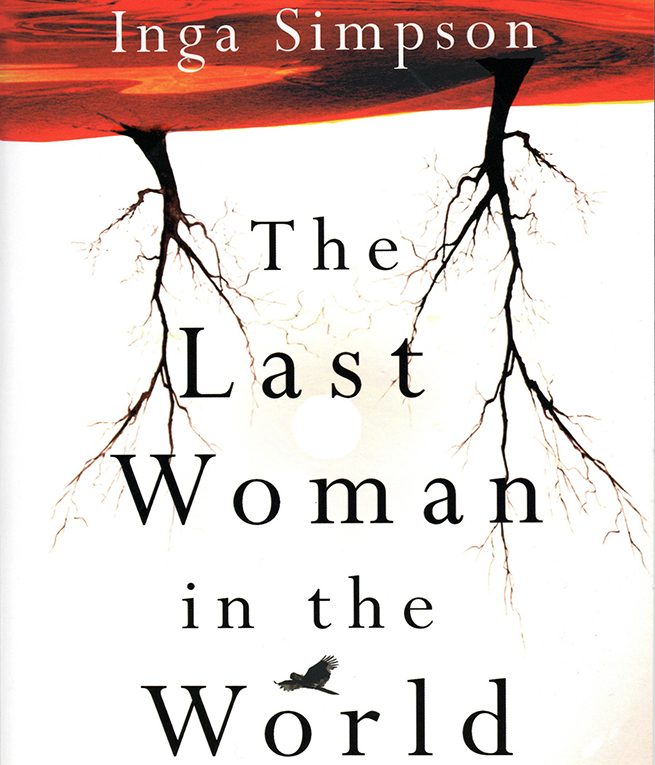
The Last Woman in the World by award-winning author Inga Simpson. Image: Supplied.
As we move into the new year, I cannot let 2021 pass without mentioning that two Canberra writers featured in previous Canberra Bookshelf columns have recently received literary awards.
Chris Hammer won the BAD Crime Writers Festival’s Danger Prize for Trust (Allen & Unwin), and Irma Gold received a Canberra Critics Circle award for The Breaking (Midnight Sun Publishing).
Hearty congratulations to both authors.
Inga Simpson’s The Last Woman in the World (Hachette) is highly recommended. It’s set in a post-bushfires, post-pandemic world in which a mysterious pestilence is wiping out the human population. It seems the common denominator for survivors is fearlessness and desperation – the new mother, the recluse, the criminals and the insane escape death.
Inga lives on the NSW South Coast and draws on John Blay’s work on the Bundian Way, and on her own extensive experiences in the bush, to craft this superb piece of frighteningly real fiction. Passages of intense beauty describing the landscape and the wilderness slip between visions of horror and the tension of flight from the mysterious human-made scourge.
This one is certainly of its time, and Canberrans will particularly relate to the portion of the book set in the region. It’s thought-provoking work, and is both intensely beautiful reading and deeply disturbing.
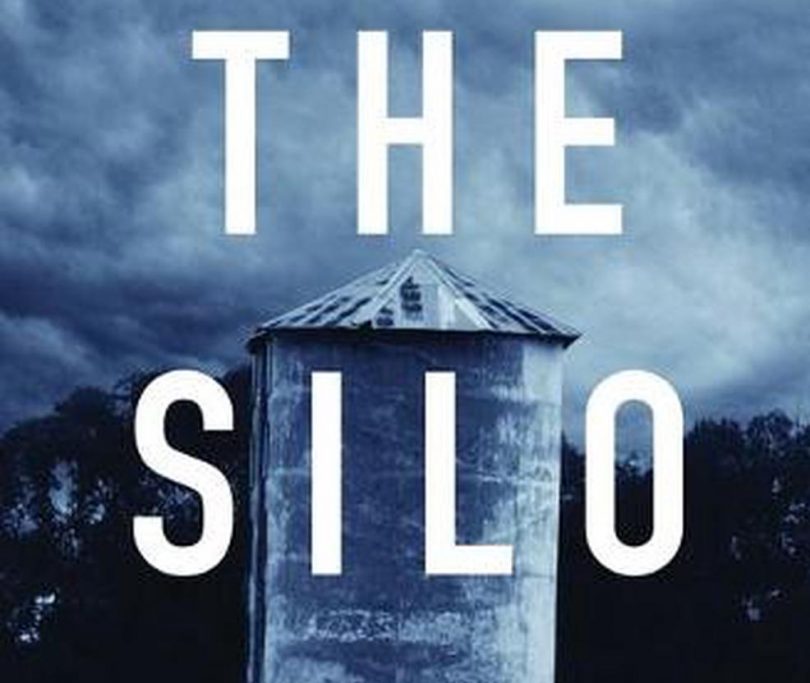
Hugh Watson’s The Silo is a new rural crime offering. Image: Supplied.
Rural crime fiction is an increasingly popular genre, and Hugh Watson’s The Silo (Halstead Press) marries it with federal politics in a suspenseful study of a sociopathic criminal. Set in northwest NSW, this story begins with childhood abuse and illustrates its life-long tendrils.
Villain and main protagonist Barry Kingscliff lays waste to all in his ambitious path, and it falls to a Sydney police officer, Detective Susan Swift, journalist Jacqui Brentnall, and good local country cop, Sergeant Crapp, to untie the intricate weave of Barry’s misdeeds and establish substantial proof of his guilt.
Hugh’s vast experience in the real world of politics stands him in good stead in painting this scene along with the seedy side of big business and overseas investment. He’s also well versed in country life and draws on personal experience to portray the challenges and values of the farming family.
His gaze takes in notions of dynasty, legacy and rightful succession in both white and Indigenous contexts.
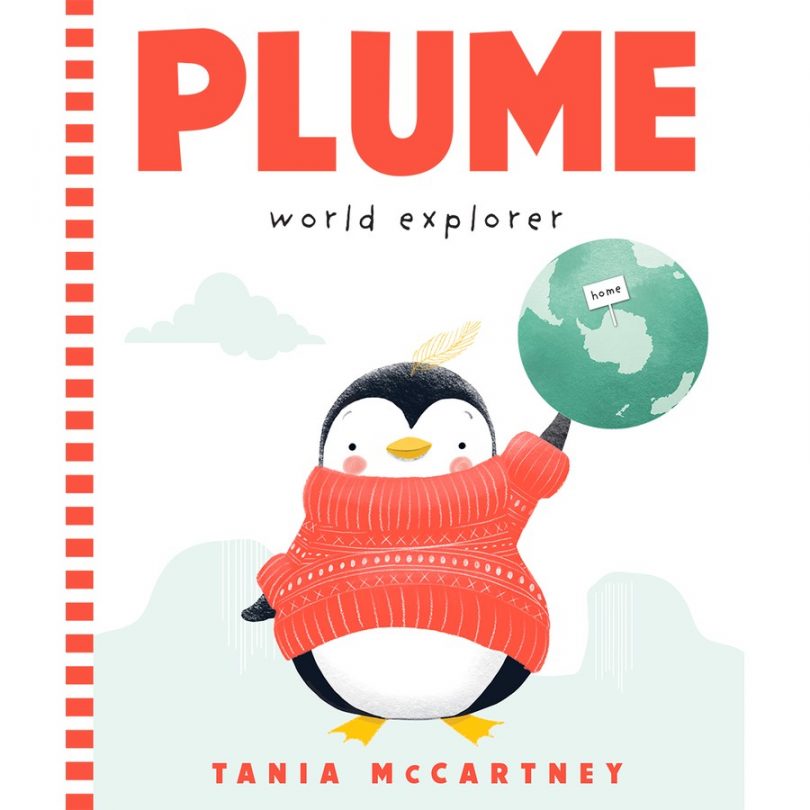
Tania McCartney’s Plume World Explorer is a light-hearted voyage around the world. Image: Supplied.
On the lighter side of life, here are two picture books that nevertheless raise important issues for young readers and their adults.
Writer-illustrator Tania McCartney’s Plume World Explorer (Hardie Grant) takes us on a continental journey starting in Antarctica courtesy of her divergent thinking and stand-out-from-the-crowd penguin, Plume, with his orange jumper and yellow forehead feather.
The underlying educational purpose of the book is to champion the joys of diversity, the pleasurable learning experiences of travel, and the power of reading. Every continent gets a guernsey with food and animals featuring, and returning home with fond memories to share with others.
Through the use of Polaroid photos, Plume encourages his fellows to similarly revel and partake in world travel.
This is the first of a series of eight books exploring different aspects of our world through Plume’s eyes, and offers plenty of discussion points in its colourful and joy-filled pages.
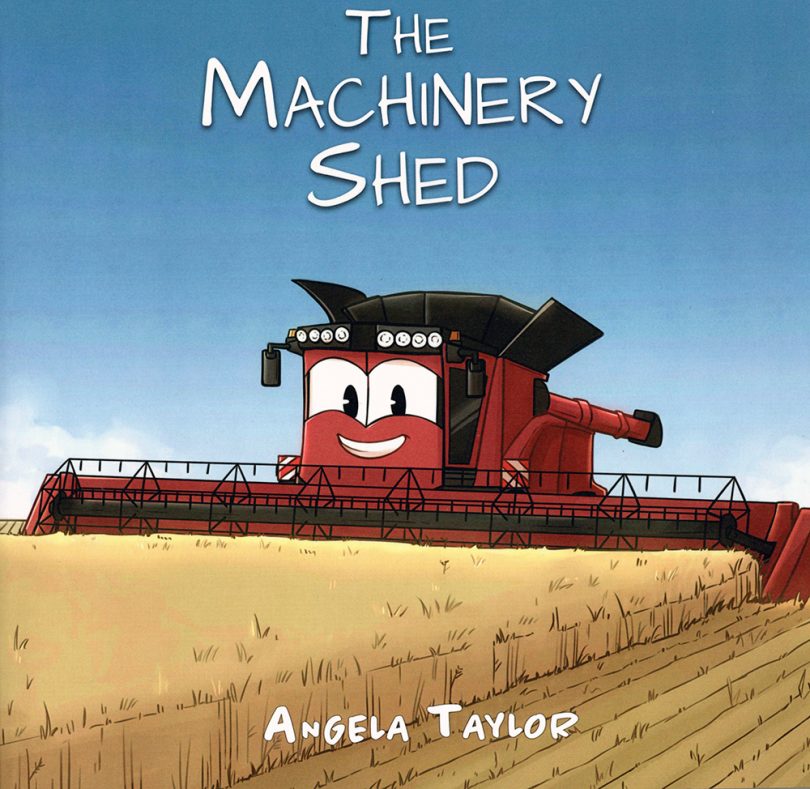
Angela Taylor’s The Machinery Shed describes the world of farming for children. Image: Supplied.
New writer Angela Taylor also takes us into a different world, but much closer to home with the life of an Aussie farm kid. The Machinery Shed (independently published and illustrated) was initially written for the author’s children. It’s a rundown of the big machinery used on the family farm in the NSW Binalong region.
However, it is much more than that.
Just as urban children see themselves in the pages of books, those who grow up in a farming environment need to see themselves and their lives. The Machinery Shed is a validation of this life, an acknowledgement of a lifestyle very different from that of a town kid.
The shed is a place where children learn from their parents and grandparents about all the aspects of their daily lives. The book is a good example of the way real-life experience feeds creativity and authentic stories.
Barbie Robinson is co-founder and a content creator for Living Arts Canberra, a not-for-profit media outfit supporting arts and community in the Canberra region and books worldwide through its website, podcast interviews and a 24/7 internet radio station.












